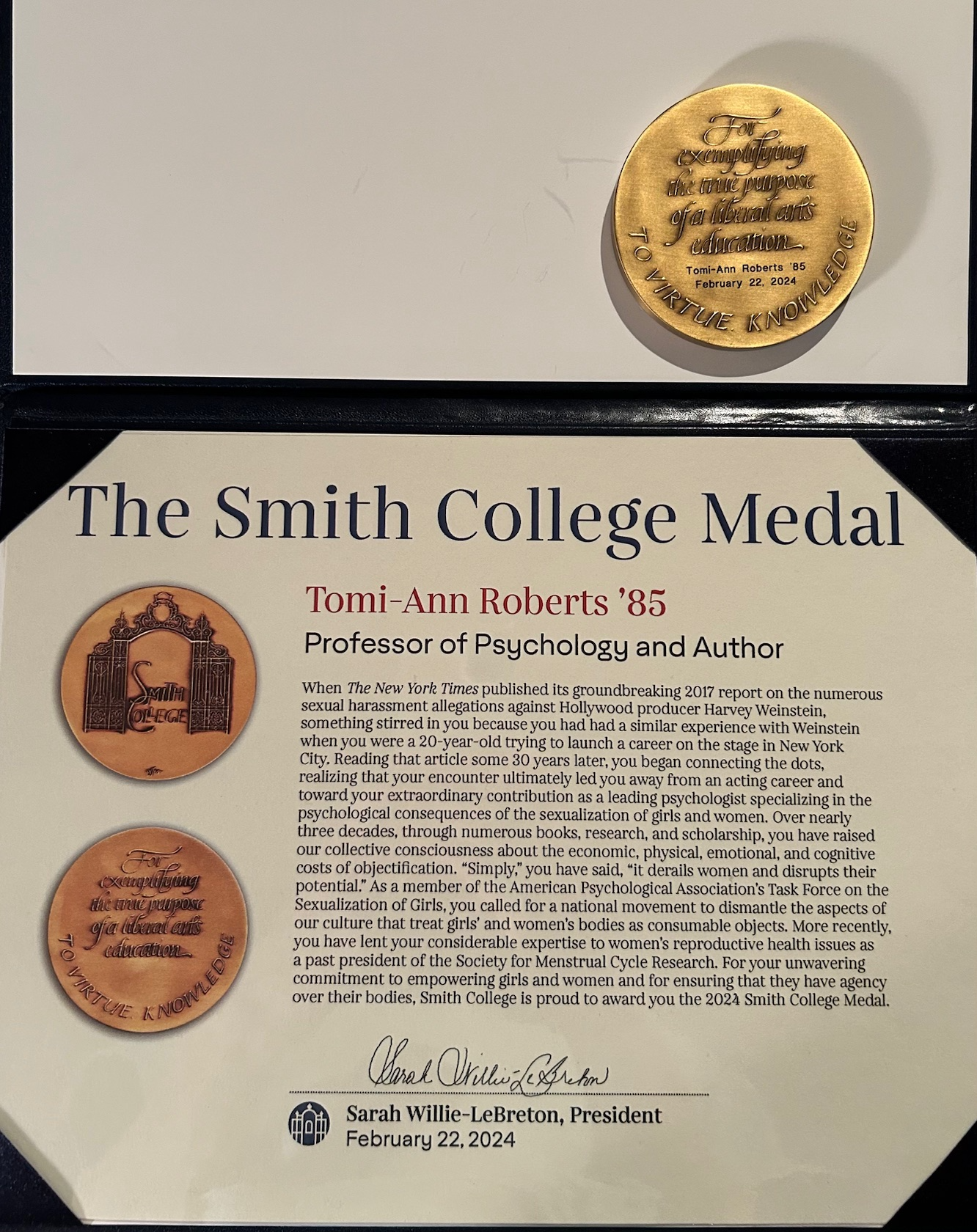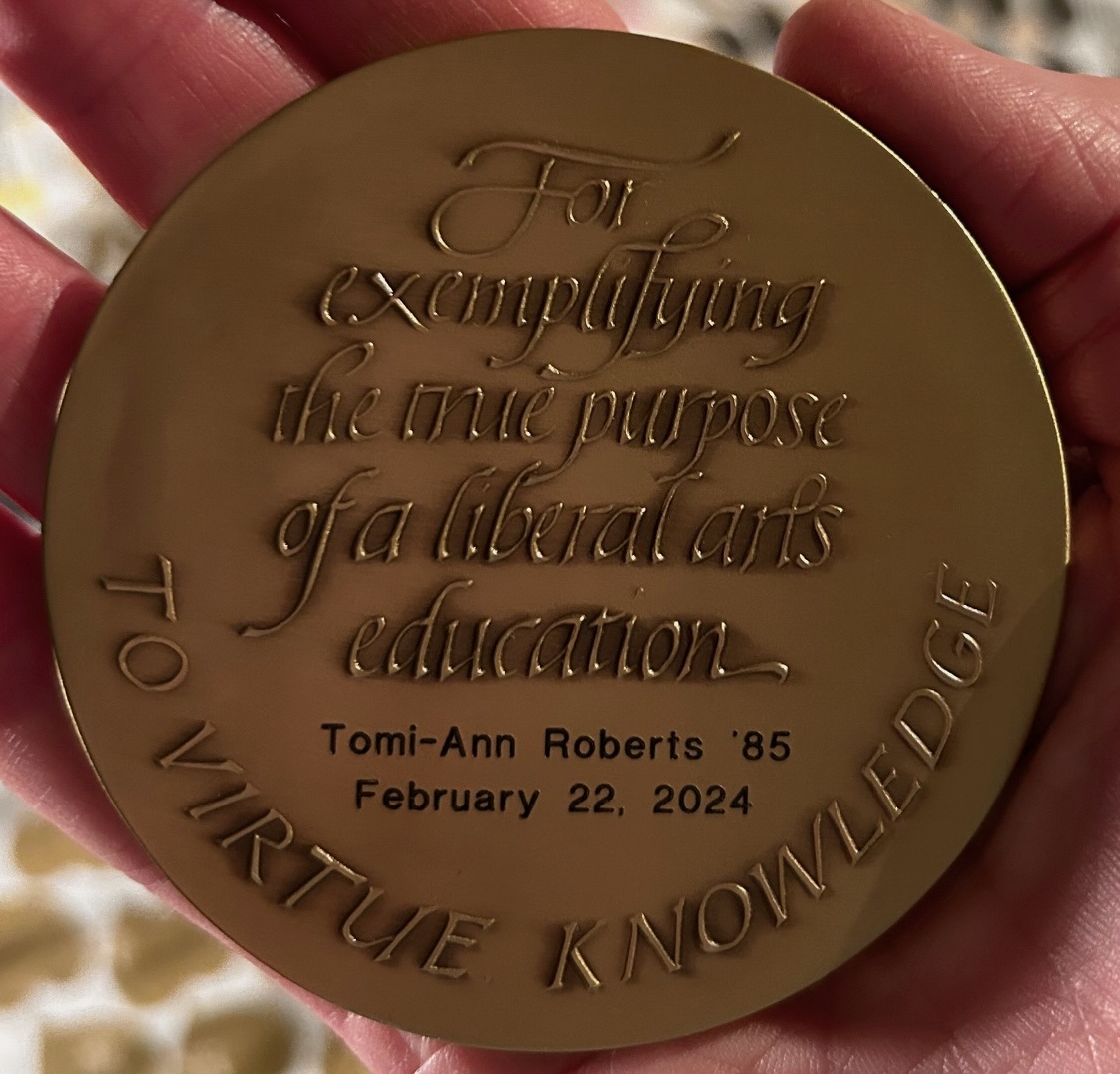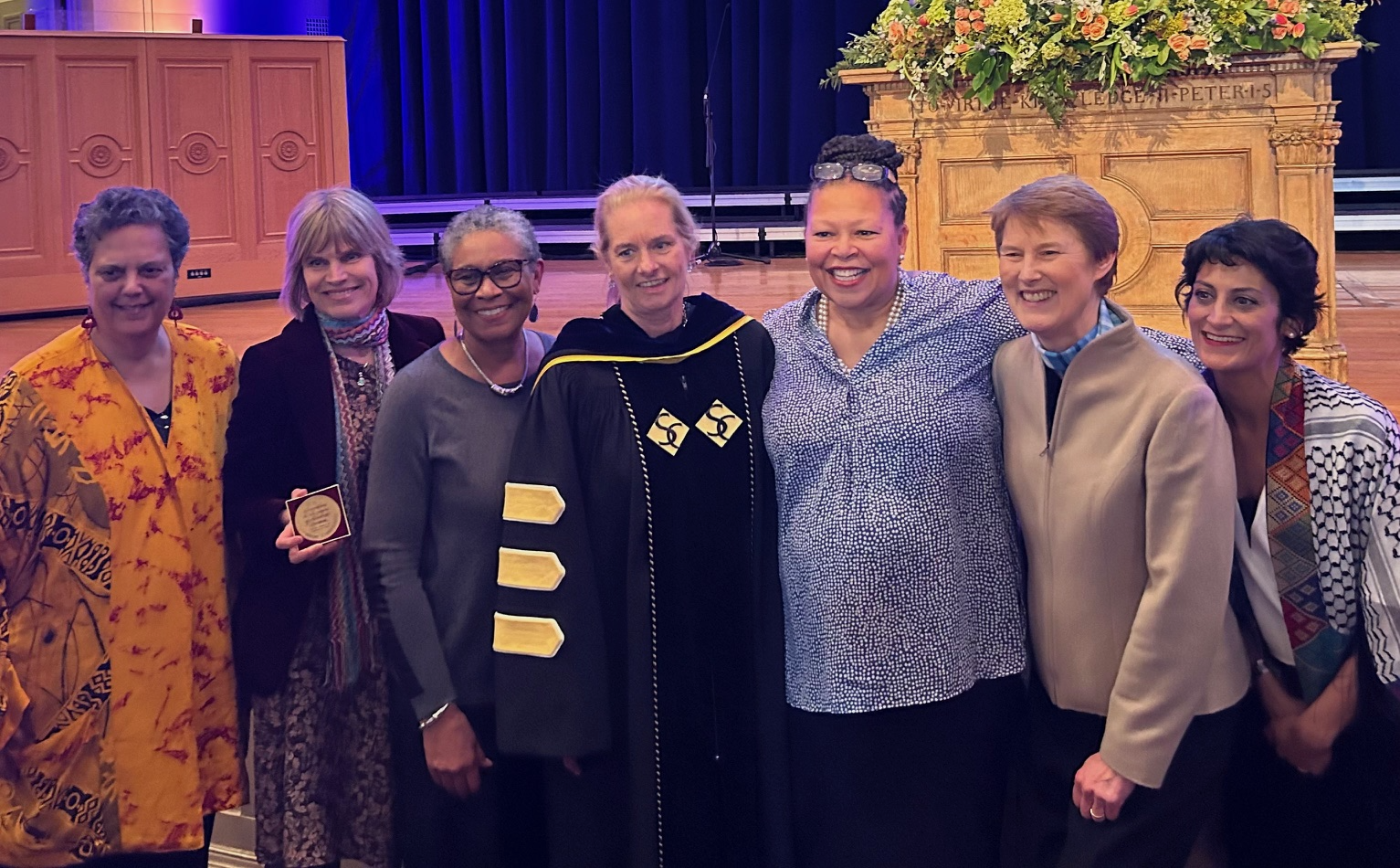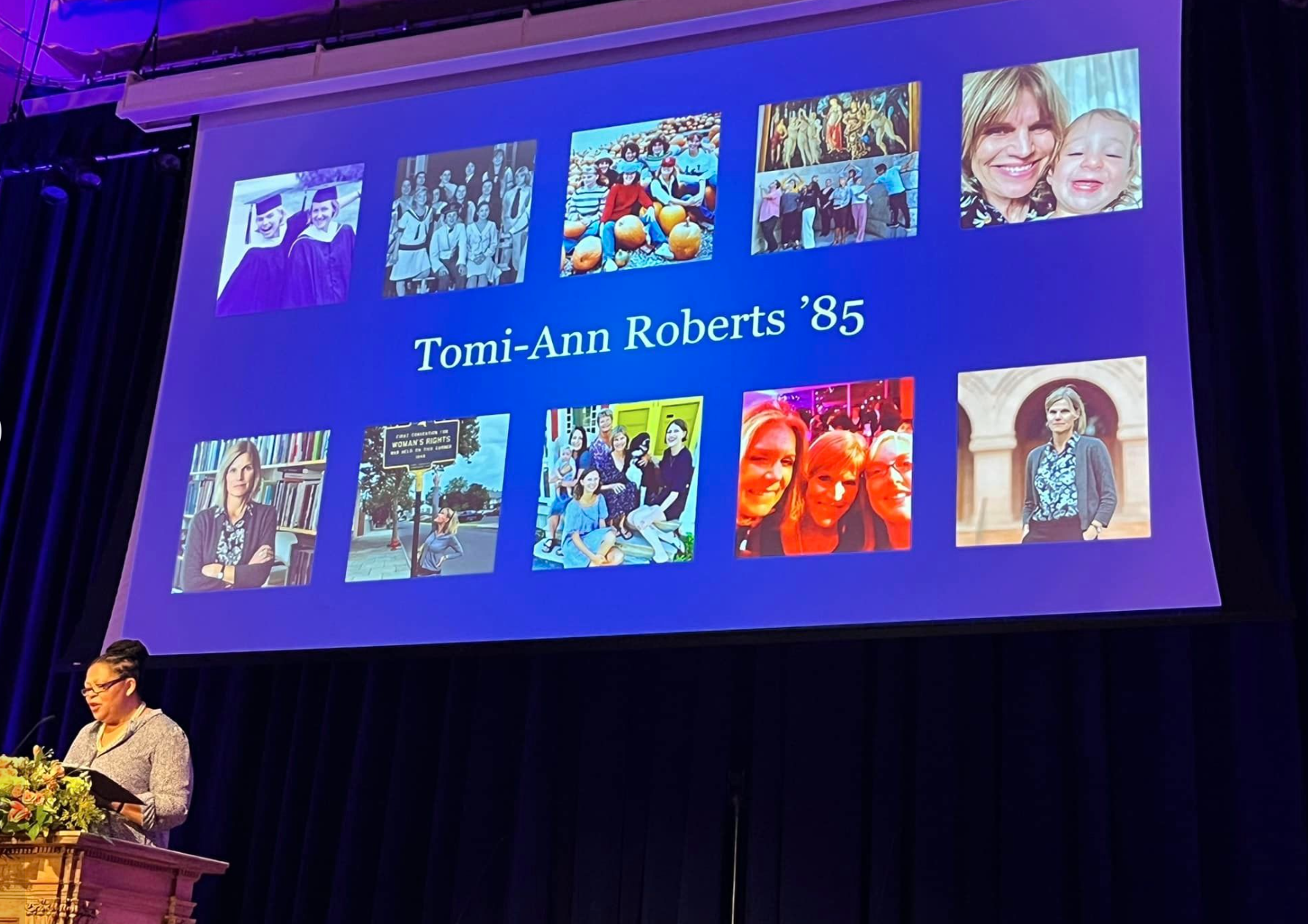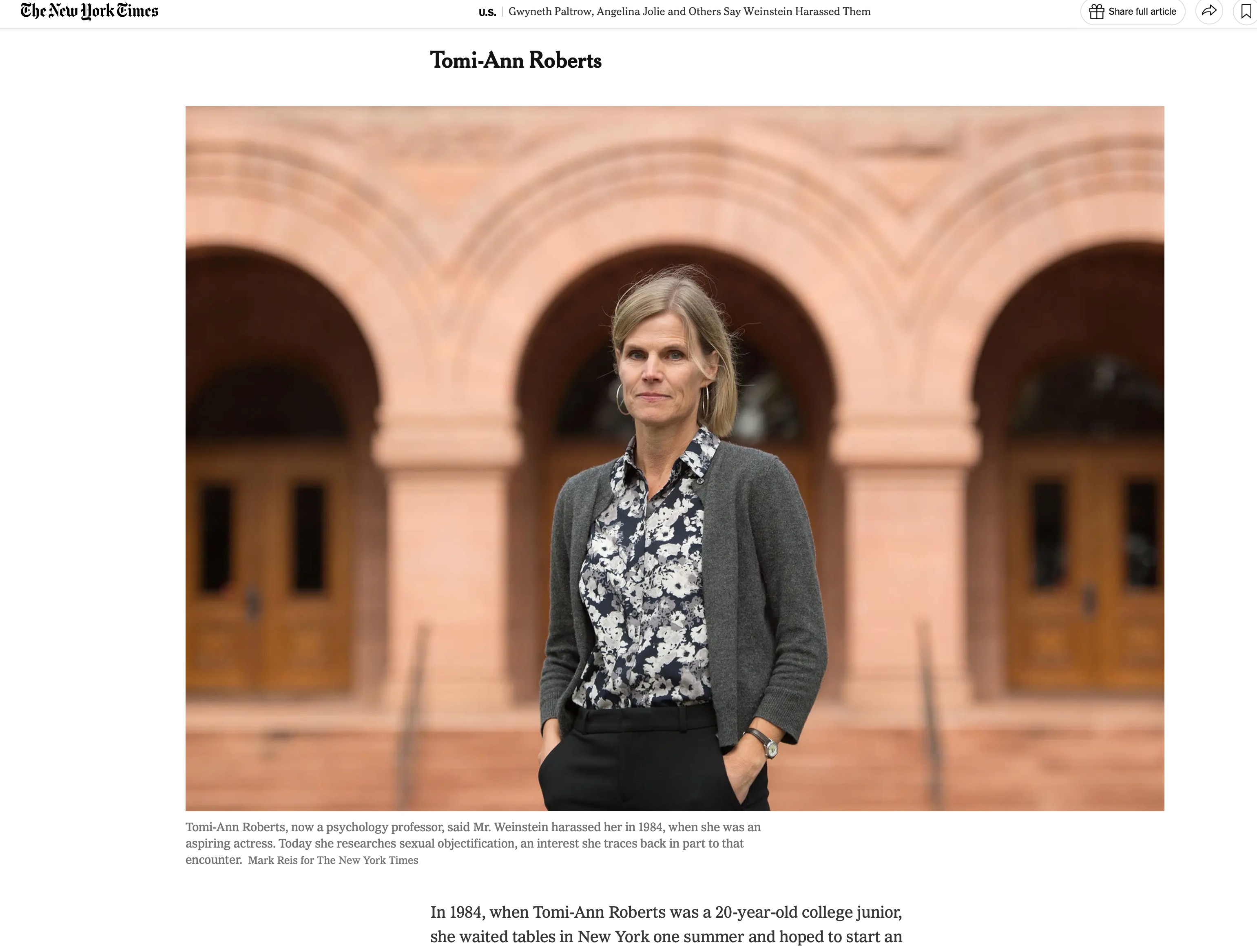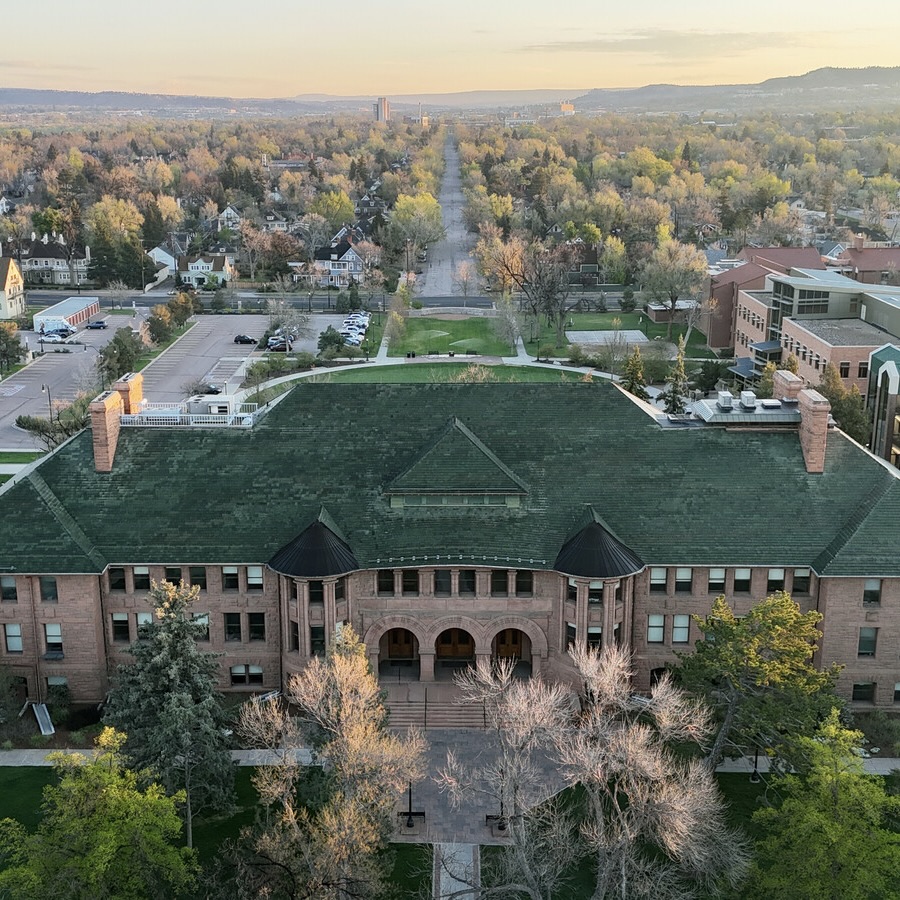We talk about the benefits of a liberal arts education daily here at Colorado College and there is nothing more gratifying than when the fruits of that education come full circle. On Thursday, February 22, CC Psychology Professor Tomi-Ann Roberts was honored by her alma mater with its top alumnae prize: the Smith College Medal; something Roberts calls the “greatest honor” of her life.
“It was the thrill of a lifetime for me to be ‘home’ at Smith and experience this honor,” says Roberts. “Words can hardly describe it.”
The Smith Medal was established in 1962 to recognize alums who exemplify in their lives and work “the true purpose” of a liberal arts education. Roberts’ story is equal parts incredible and remarkable.
In the summer after her junior year in 1984, while trying to launch an acting career on stage in New York City, Tomi-Ann Roberts was sexually harassed by Hollywood producer Harvey Weinstein. The man stood between her and an acting job. She calls it a watershed moment. Her encounter ultimately led her away from an acting career and toward her contribution as a leading psychologist specializing in the psychological consequences of the sexualization of women and girls.
“What misogyny does is try to convince all who identify as women that their appearance is the most important thing about them,” says Roberts. “No matter what you bring to the table, how your body is seen can make or break you.”
After her experience with Weinstein, she came back to Smith for her senior year to finish her psychology degree in 1985. She took an art class, found her voice for persuasive argumentation in a Constitutional law class, and tried to deal with her anxiety and shame from that summer. By the time she got to the diploma circle at graduation, she felt fortified to get a PhD to develop the tools to do feminist research on the very things that threatened to consume her: sexual objectification and internalized self-objectification.
“It pits us against one another to try to win on patriarchy’s terms. You can say that my work on these issues has been my clapback to that summer,” she says.
Before presenting her with the medal, Smith College President Sarah Willie-LeBreton told the Smith community, “Over three decades through numerous books, research, and scholarship, Roberts raised our collective consciousness about the economic, physical, emotional, and cognitive costs of objectification.”
Tomi-Ann Roberts’ research, teaching, and advocacy in the areas of gender, emotions, and aesthetics, center on her Objectification Theory, which examines the sexual objectification of girls and women, self-objectification, and the consequences of these for their embodied wellbeing. Objectification Theory is the most cited article in the history of the APA journal Psychology of Women Quarterly. Tomi-Ann has authored five books and co-authored (many with CC student collaborators) over 50 peer-reviewed articles and chapters. She leverages psychological science as a consultant for reproductive health-related product brands, and as an expert witness in legal cases involving objectification as a form of gender discrimination.
When the New York Times published its 2017 report about numerous allegations of sexual harassment by Weinstein, Roberts felt further empowered to speak out about her experience. She says objectification derails women and disrupts their potential. As a member of the American Psychological Association’s Task Force on the Sexualization of Girls, she called for a national movement to dismantle aspects of our culture that treats girls’ and women’s bodies as consumable objects.
“If the medal is for my work: entitling women and girls and female identifying folks to their own embodied agency and well-being, then this is another diploma circle,” Roberts told the audience. “I am grateful to accept a medal for doing what I felt called to do because of Smith.”
“When I refer to the ‘diploma circle,’” Roberts says upon her return to CC, “it’s something very special at Smith, that I specifically chose to highlight in my speech because it illustrates the community and sisterhood that Smith is all about. At Smith, your education is not a transaction. It’s a collaboration and a group activity.”
Roberts urged the Smith audience to “lean in” to their sisterhood. “Don’t compete in isolation for recognition and rewards,” she implored. “Keep doing what you can with and for the sisterhood, because someday it will come full circle. It belongs to all the sisters.”
Roberts has also lent her expertise to women’s reproductive health issues as a past president for the Society for Menstrual Cycle Research. Smith College chose to honor her for her “unwavering commitment to empowering girls and women and ensuring that they have agency over their bodies.”
Back at CC, where Roberts has taught for 31 years, several colleagues offered their support for her strong work ethic.
“This pinnacle recognition for Tomi-Ann comes as no surprise for her feminist community at CC,” says Sarah Hautzinger, CC Professor of Anthropology. “Her attention to the well-being of women and girls has been unflagging all along. She is CC’s most-cited scholar for her work on objectification, while other interests span ‘gazing’ (male and otherwise), to happiness and laughter, to technology fasting, and much more. Most important of all, she is a truth-teller and a speak-upper, and she models this for us all."
“Tomi-Ann has been and continues to be a tour de force for captivating and inspiring students,” adds Mark Saviano, Technical/Statistical Director of CC’s Psychology Department.

